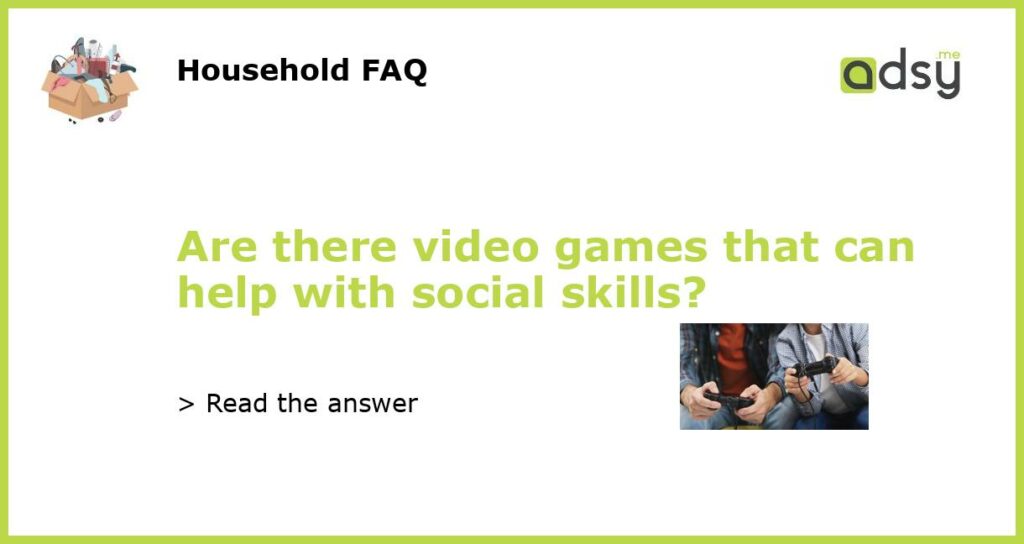Video Games Can Improve Social Skills
Many people often think of video games as a solitary activity, where players spend hours alone in front of a screen. However, there is a growing body of research showing that certain video games can actually help improve social skills. These games provide players with opportunities to interact with others, work as a team, and communicate effectively. Let’s explore the ways in which video games can enhance social skills.
Cooperative and Multiplayer Games
Cooperative and multiplayer games are designed to encourage players to work together towards a common goal. These games often require communication and coordination between team members. Whether it’s strategizing in a team-based shooter game or collaborating in a cooperative puzzle-solving game, players must interact with each other in order to succeed. This fosters teamwork and enhances social skills such as clear communication, empathy, and cooperation.
Online Gaming Communities
Video games can also provide opportunities for players to interact and communicate with others through online gaming communities. These communities consist of players from all around the world who join together to play and discuss their favorite games. Engaging in conversations with other players can improve social skills such as active listening, understanding different perspectives, and forming meaningful connections.
In addition, online gaming communities often have forums or chatrooms where players can ask for help, share strategies, and provide support to one another. These interactions can help players develop problem-solving abilities, patience, and the ability to give and receive constructive feedback.
Role-Playing Games and Character Development
Role-playing games (RPGs) allow players to assume the roles of characters and embark on virtual adventures. These games often involve intricate storytelling and character development, which require players to make decisions based on social interactions and relationships. RPGs can help players enhance their emotional intelligence by allowing them to explore different perspectives, make moral choices, and understand the consequences of their actions.
Furthermore, some RPGs offer players the ability to customize and personalize their characters. This can be particularly helpful for individuals who may struggle with self-expression or self-confidence. Through their avatars, players can experiment with different personalities, styles, and social behaviors, ultimately leading to increased social skills and self-awareness.
Virtual Reality Experiences
Virtual reality (VR) gaming takes immersion to the next level by creating a sense of presence and allowing players to interact with their environment in a more realistic way. VR games often simulate real-world scenarios, providing players with opportunities to practice social skills in a safe and controlled environment. For example, there are VR experiences that simulate job interviews or public speaking engagements, allowing individuals to practice and improve their communication and interpersonal skills.
Additionally, multiplayer VR games can bring people together in a virtual space, allowing for social interaction and collaboration. Through VR, players can experience shared adventures, engage in conversations, and build relationships, all of which contribute to the development of social skills.
While it is important to note that not all video games are designed to improve social skills, there are certainly many that can be beneficial in this regard. Cooperative and multiplayer games, online gaming communities, role-playing games, and virtual reality experiences all provide opportunities for players to interact, communicate, and collaborate with others. By engaging in these games and experiences, individuals can enhance their social skills, such as communication, teamwork, empathy, and problem-solving abilities. So, the next time someone tells you that video games are isolating, you can confidently explain how they can actually help improve social skills.






